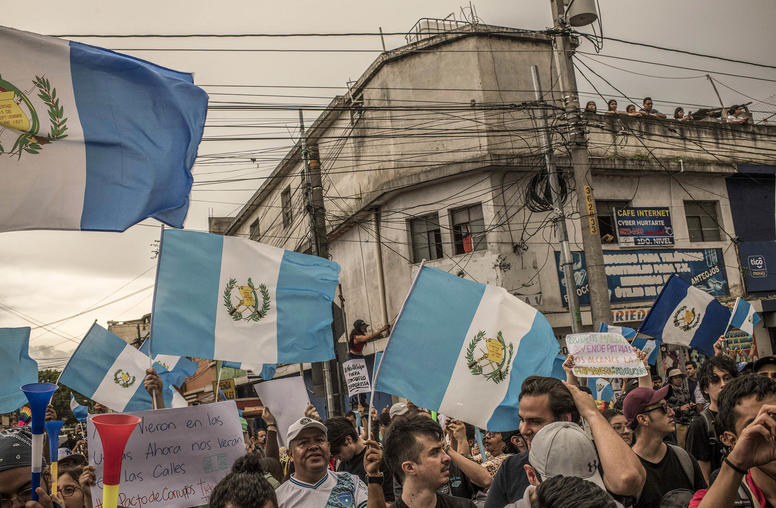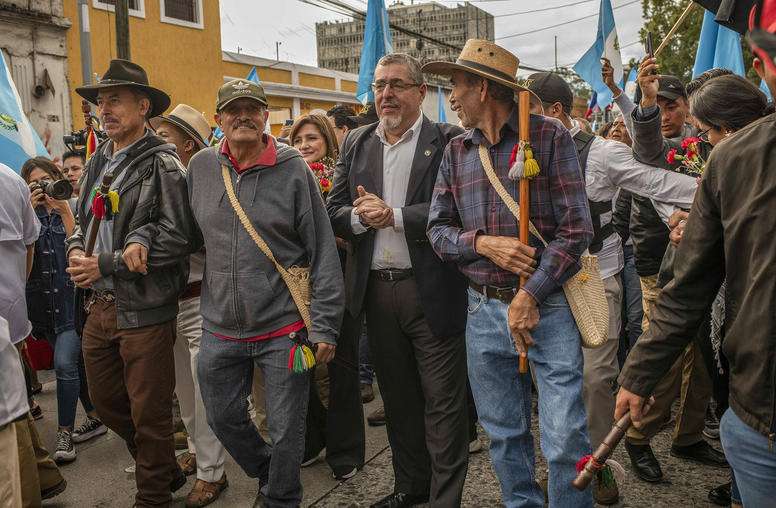To Curb Corruption and Violence, Engage the Grass Roots
Policies and Programs Can Do More in Sync with Local Movements
Thousands of Guatemalans have rallied publicly in recent weeks to support an international commission that prosecutes those behind the country’s endemic corruption. A Guatemalan citizens’ campaign, called #JusticiaYa (Justice Now), is one of many nonviolent, grassroots mobilizations against corrupt governance in countries from Tunisia to India to South Korea. What synergies can exist between these movements and international anti-corruption efforts by governments and non-government organizations? On October 23, leaders from citizens’ campaigns in Guatemala, Ukraine and Burkina Faso explored how international actors can find synergy—and better curtail corruption—with grassroots movements.
In recent years, citizens’ movements in many countries have campaigned for more honest, accountable governance. Governments, and international institutions increasingly acknowledge the central role of corruption in fueling violent upheavals worldwide. How can accountability and stability be strengthened if local activists and international actors are working in complementary ways—from bottom up and top down?
This USIP forum explored lessons from varied nonviolent campaigns on three continents.
After its three-decade civil war, Guatemala worked with international partners to establish the International Commission Against Impunity in Guatemala, which investigates organized crime and corruption, and strengthens the rule of law. Guatemalan civil society has supported the commission’s work, and public protests arose recently against political leaders’ efforts to weaken it.
Many international actors back anti-corruption reforms in Ukraine, including the U.S. and other governments, the European Union and the Organization for Economic Cooperation and Development. Ukrainian citizens’ campaigns that have grown from the country’s 2013 Euromaidan protest movement can better inform those international efforts and add pressure from the grass roots to achieve reforms.
In Burkina Faso, the organization Balai Citoyen (Citizen’s Broom) used public street cleanings to build its organization. In 2014 it mobilized thousands of supporters amid mass protests against corruption and oppression that led to the ouster of President Blaise Compaore. Balai Citoyen now works to build transparency and accountability in Burkina Faso’s state institutions, notably with USIP’s Justice and Security Dialogue program.
On October 23 USIP held a discussion that can help policymakers, donors, conflict resolution professionals and others find new paths for work with home-grown civic initiatives to curtail corruption, improve governance and justice, and build stability.
Continue the conversation on Twitter with #USIPAntiCorruption.
Confirmed Speakers
Idrissa Barry
Coordinating Committee Member, Balai Citoyen
Shaazka Beyerle
Jennings Randolph Senior Fellow, Nonviolent Action, USIP
Philippe Leroux-Martin, Moderator
Director, Rule of Law, Justice and Security, USIP
Lucía Mendizábal
Civil Leader/Founder of RenunciaYa Movement
Taras Shevchenko
Executive Director, Centre for Democracy and Rule of Law
Yale Greenberg World Fellow
Co-chair, Reanimation Package of Reforms coalition, 2016-2017



